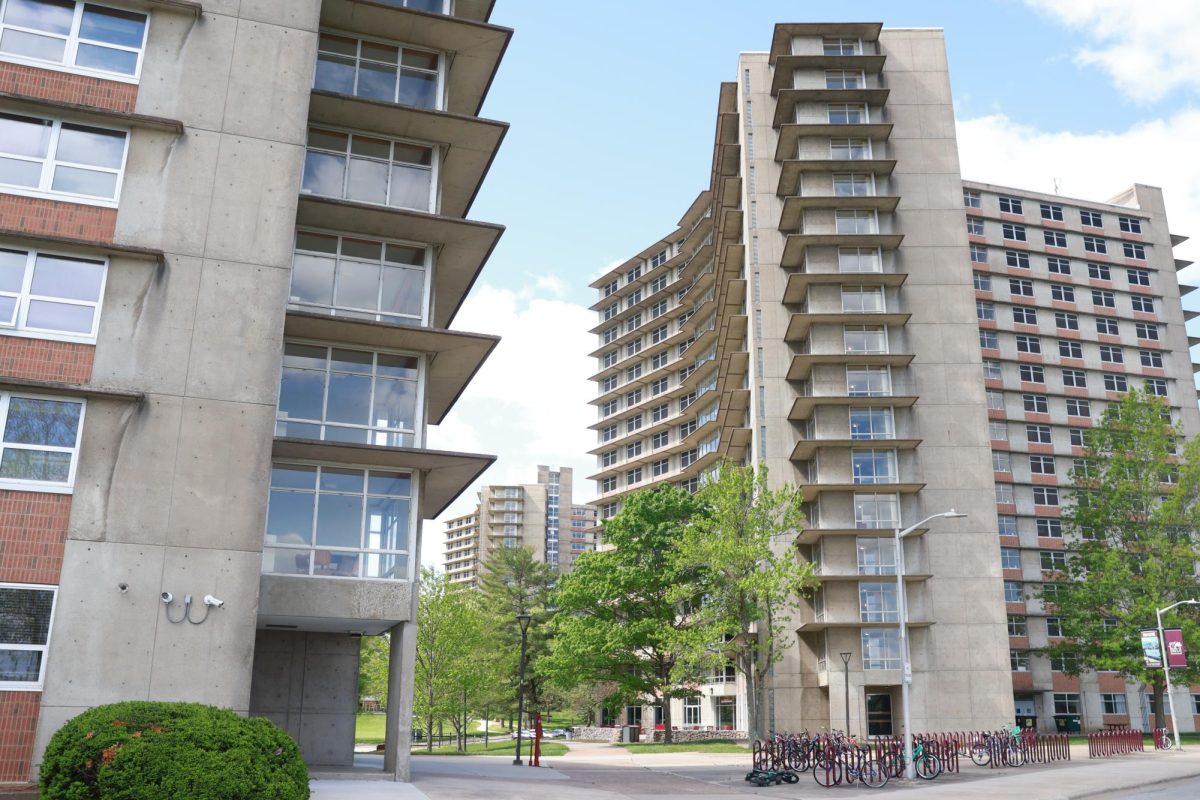University reaches settlement with GAU
February 12, 2014
A graduate assistant who filed a grievance against the SIU more than a year ago has reached a settlement.
Graduate Assistants United and the university reached a settlement stemming from a grievance filed against University Housing in November of 2012 by Kevin Ross, a graduate student from Pickneyville studying rehabilitation counseling.
The university and the GAU settled on the amount of a $650 compensation for Ross.
Advertisement
Under the collective bargaining agreement between the Board of Trustees and GAU, a grievance is defined as a dispute raised by an assistant against the university.
When the grievance was filed, Ross was working as an area complex director for graduate and family services of University Housing at Evergreen Terrace.
Evergreen Terrace is located on W. Pleasant Hill Road, the southwest side of campus, and is used as housing for students with children, married or domestic partner students and single graduate students.
Chancellor Rita Cheng, GAU President Matt Ryg and Ross signed the settlement on Jan. 14.
According to the settlement, the university violated two articles in the collective bargaining agreement which stipulate the average number of hours an assistant should work per week under contract, and said assistants shall receive holidays and any other scheduled campus closures off work without loss of pay.
In this instance, Ross worked under a 50 percent contract, which required him to work an average of 20 hours a week. Ross said he was asked to work on holidays as well as being on call and was not paid for over-time work.
“Part of the problem was no one was keeping track,” Ryg said. “He was being expected to work, in addition to the 20 hours in the office, on-call hours.”
Advertisement*
By calculating the projected hours worked over the stipulated 20 hours per week, the GAU was able to calculate a fair settlement determining what the assistant’s time was worth, Ryg said.
The amount of $650 was ultimately agreed upon.
Ryg said it is important to have a union for graduate assistants.
“We need a union, because if we don’t, our rights, our wages and the conditions of our employment will deteriorate over time,” he said. “We only have power if we are working together.”
He said without the GAU, the grievance could have been dismissed.
“Having my union made a world of difference. I was able to have someone back me up,” he said. “Going in alone could have been disastrous.”
The settlement represents collaboration between the GAU and the university moving forward, Ryg said.
“This settlement represents an instance where the interest of the graduate assistants and the university are the same,” he said. “Moving forward, I hope to continue the partnership and the goodwill we have established so far.”
Kevin Taylor, the GAU vice president for communications, said the settlement shows the administration is taking labor grievances seriously.
“It gives people like Kevin and other people who want to come forward an opportunity to have their voices heard,” he said. “We are finding out they are not being retaliated against, which is really nice. So there is no fear in stepping forward.”
Dennis Lunt, former grievance officer GAU, said 80 to 90 percent of grievances are handled quickly and informally. If the informal process does not produce a resolution, the grievance is moved to a formal procedure beginning with the chair or director of the department.
According to a union press release, this was “the first formal resolution in the 7-year existence of GAU.”
If no resolution can be made, the grievance moves to the dean of the graduate school and, if necessary, the grievance moves to the provost and chancellor, as outlined in the agreement.
The formal grievance procedure has a timeline attached to keep the discussion on the table, Lunt said.
“What’s nice about the process is it keeps everyone moving,” he said. “It doesn’t let any party ignore the process. We have to sit, talk and bring certain kinds of evidence to the table.”
Jon Shaffer, director of University Housing, and Susan Ford, interim dean of the graduate school, have agreed to a “memorandum of understanding” with the GAU.
This “memorandum of understanding” is a temporary set of rules until the next round of collective bargaining between the university and the GAU.
The document outlines limitations for on-call hours for graduate assistants working for University Housing. An area complex director under a 50 percent contract with an average of 20 hours per week will receive five paid hours for being on-call and cannot be on-call for more than one week in a three-week period.
James Anderson, the GAU steward for the College of Mass Communication and Media Arts, said the “memorandum of understanding” was one of the more important products of the settlement.
“It put limits on those on-call hours,” he said. “It spelled out some limits to prevent this sort of thing from happening again in the future.”
Kyle Sutton can be reached at [email protected], on Twitter at @KSutton_DE or at 536-3311 ext. 268.
Advertisement








